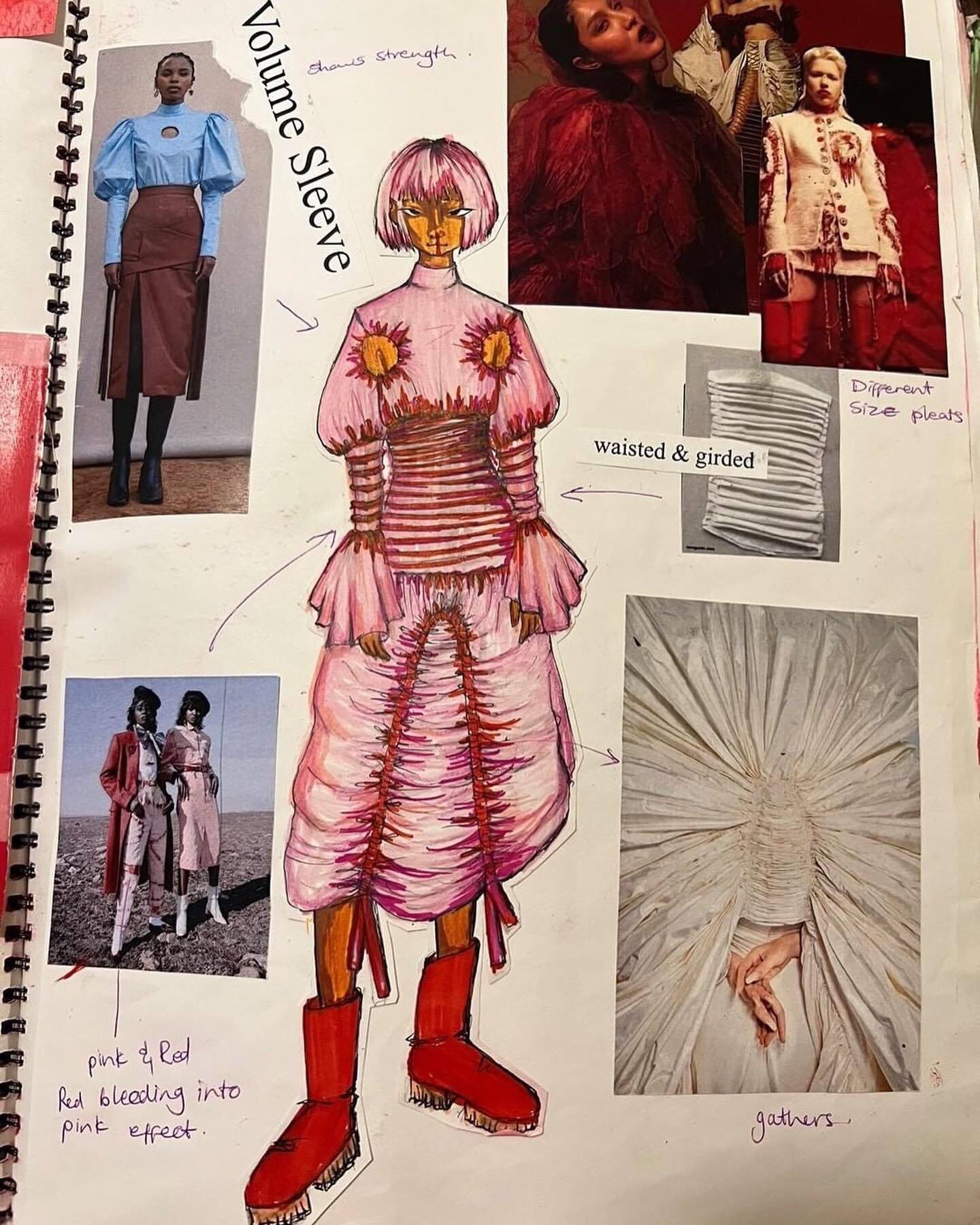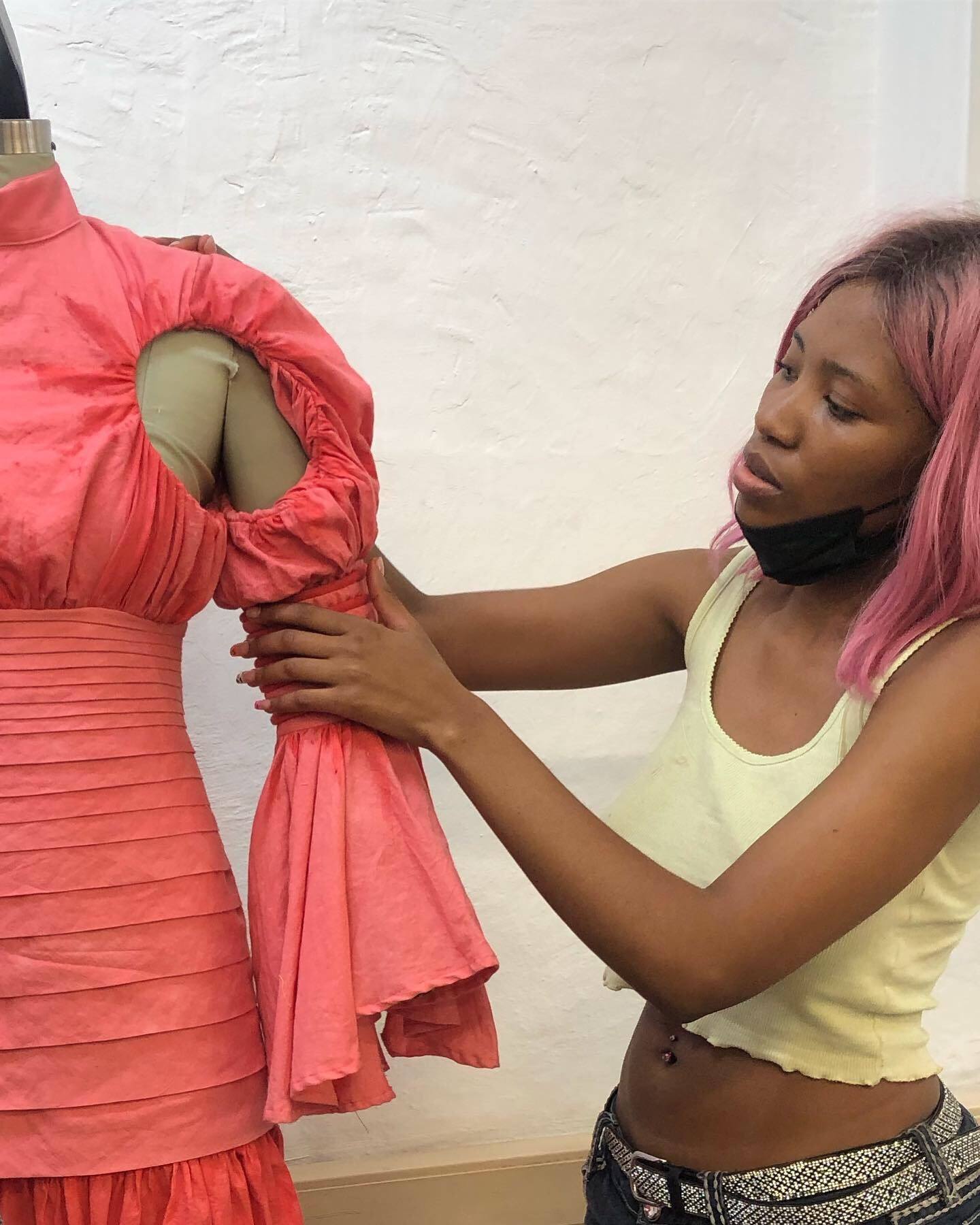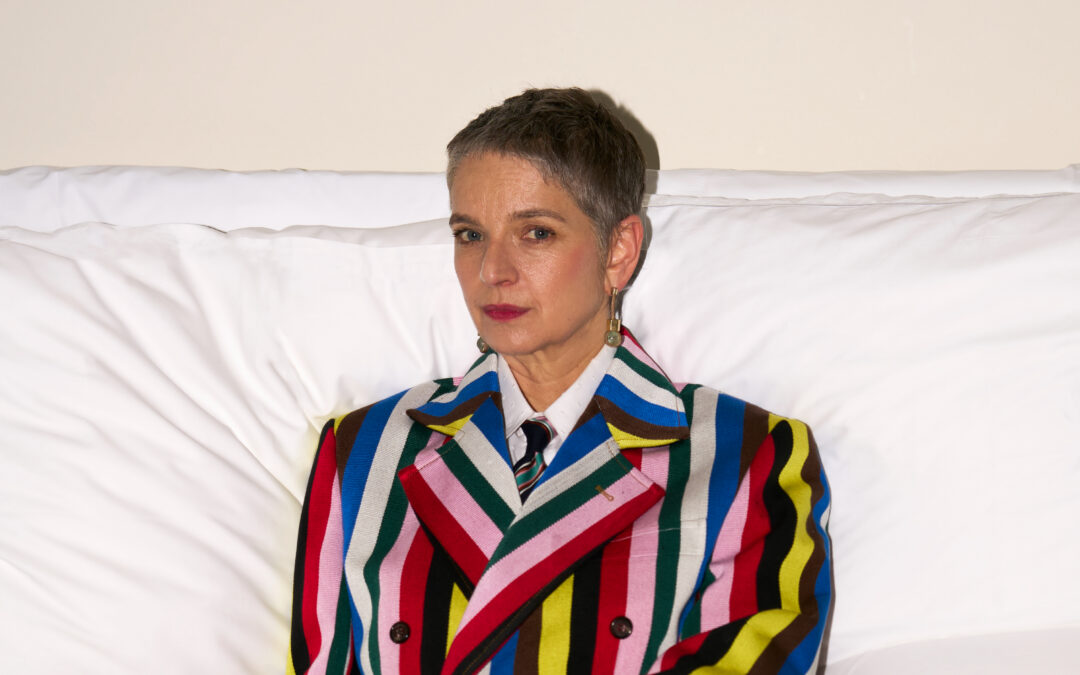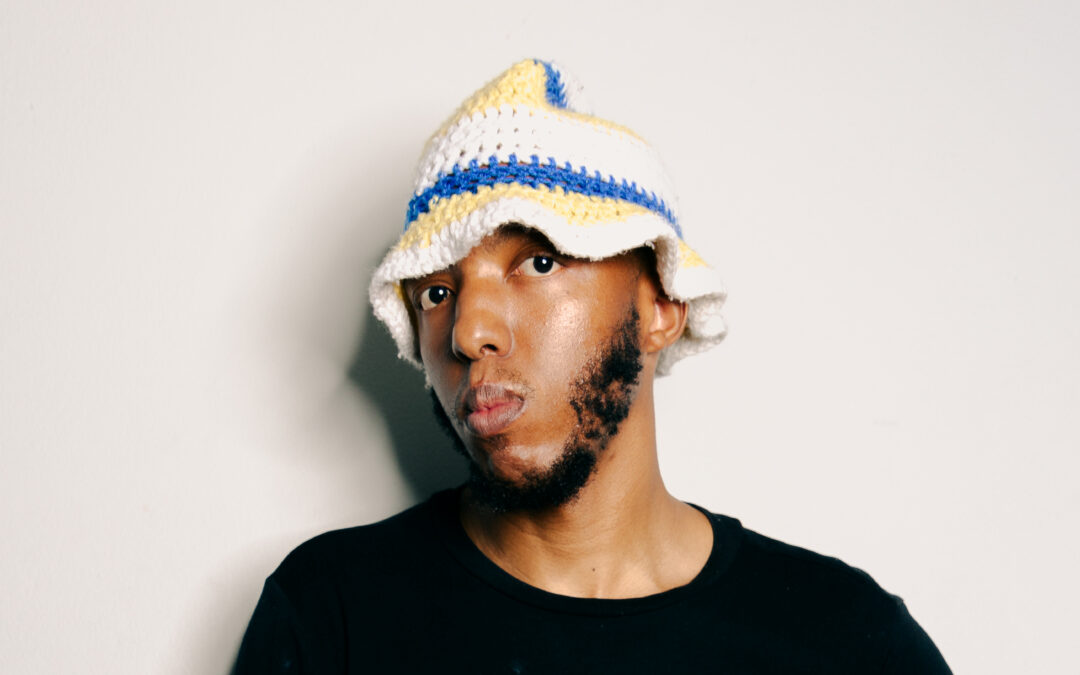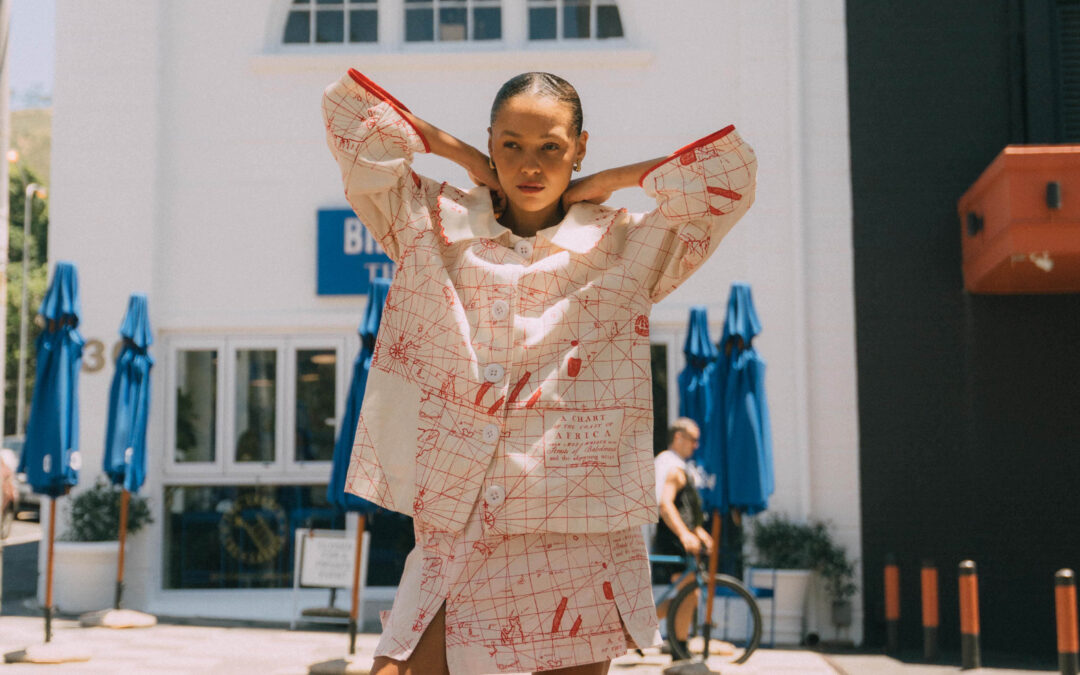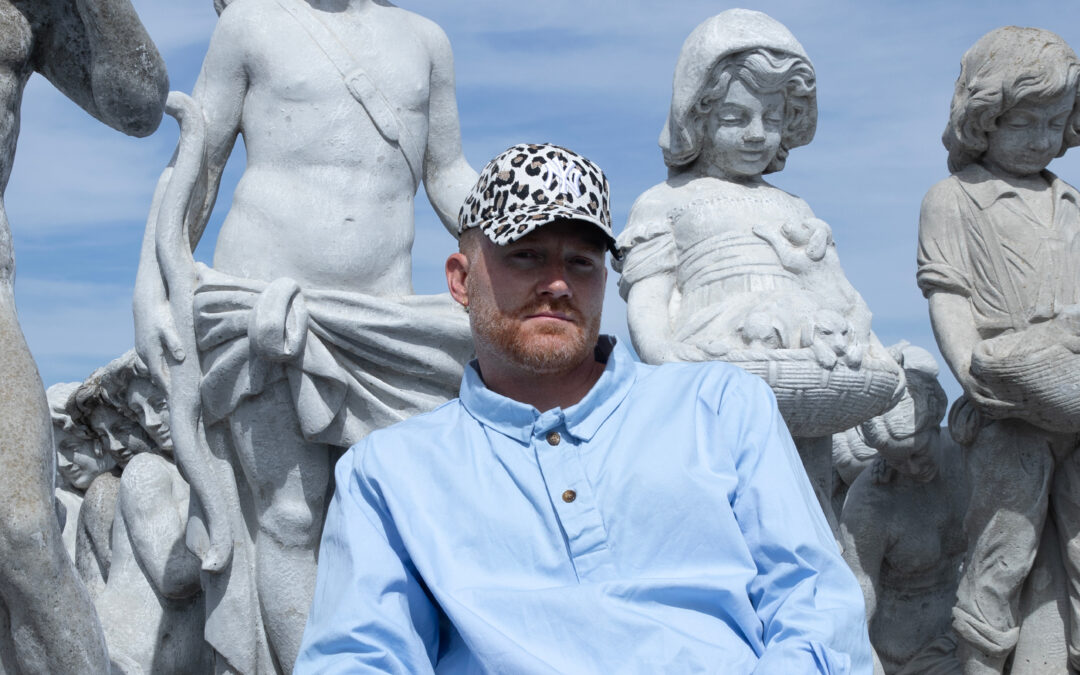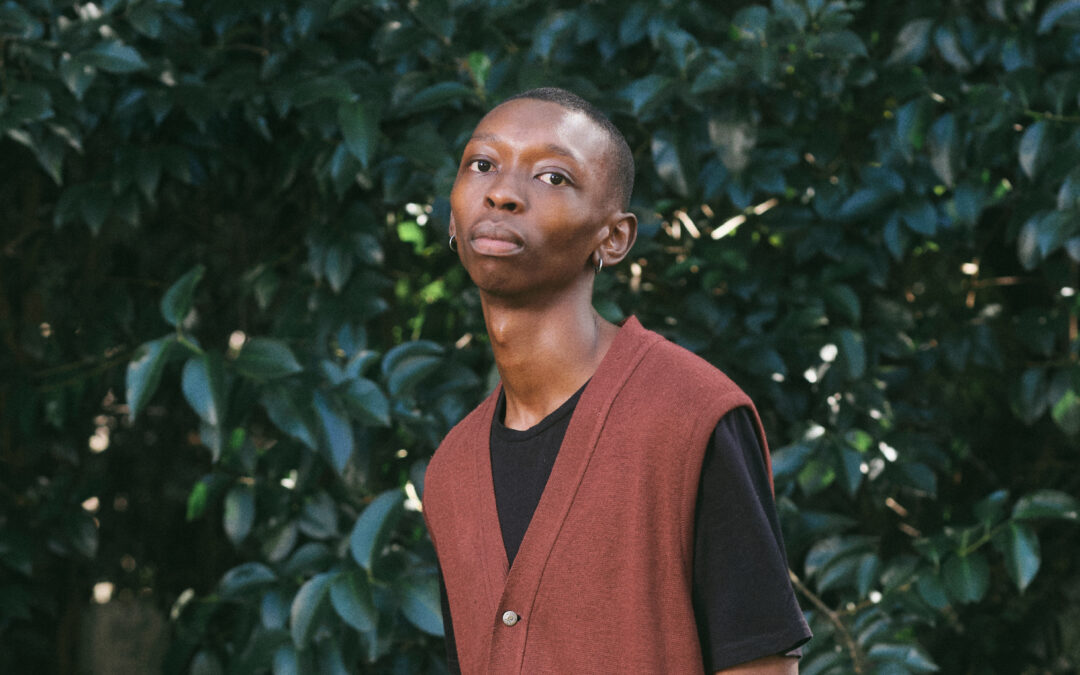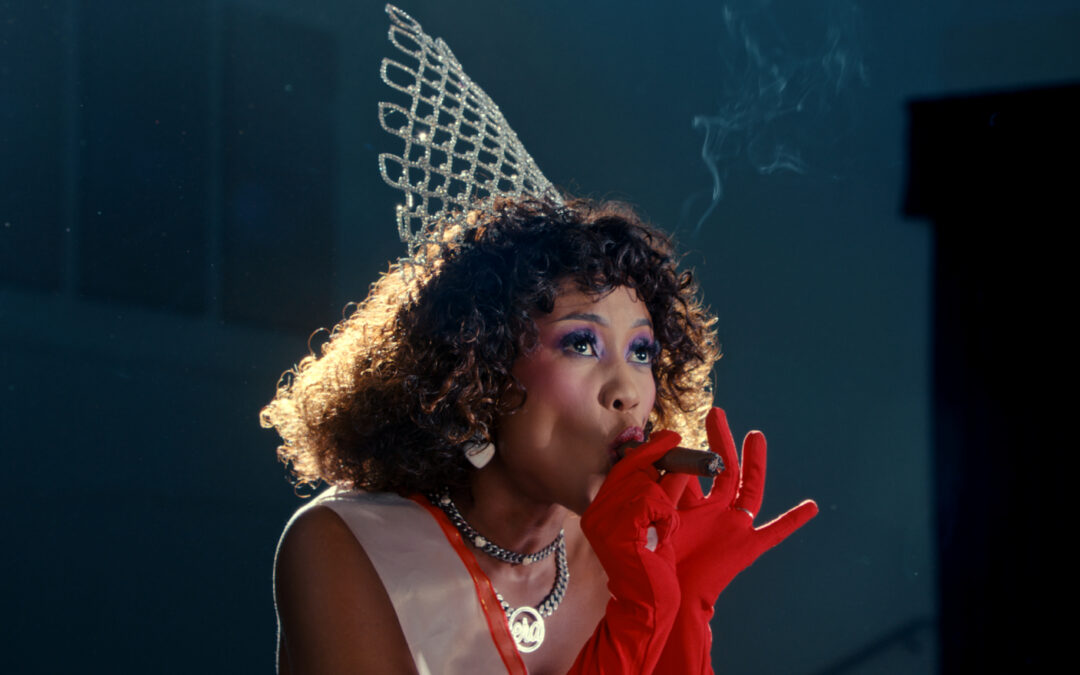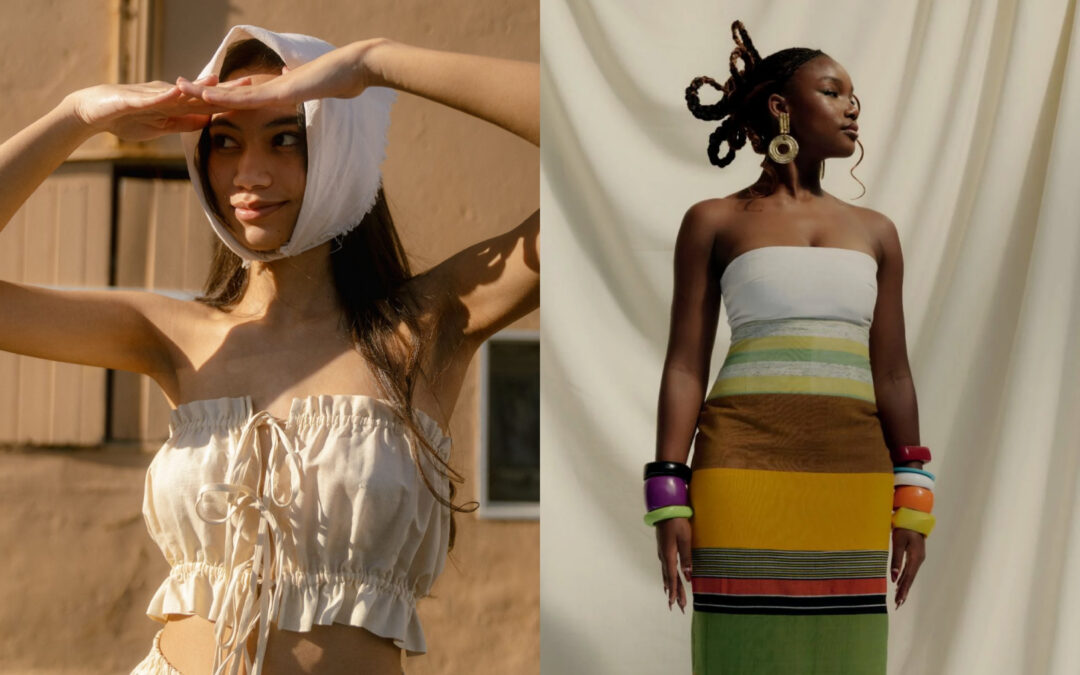Visions of bubblegum pink in cohesive, regular doses has been a rarity in recent memory – as if a hangover from the 90s and Y2K pop cultural eras of magenta and rose as essential design features (Von Dutch and Juicy Couture, anyone?) – the 2010s saw minimalism and monochromatism as the antidote to these kaleidoscopic altars of our aesthetic tastes. Imbued with a deep sense of feminine quality – whether socially ascribed or energetically felt – pink is bold and brave, and Mmaphuti Movundlela is its patron saint in South Africa. Having only just graduated from Durban University of Technology from their Fashion & Textiles course, Phuti is already a polymath and namesake in South African fashion. Between running two businesses – P EXOTIC and and Closet Chipi – and styling iconic figures for Cottonfest, or playing photographer, model and muse – Phuti is a chameleon and shapeshifter when it comes to gaining experience in every role that the fashion industry has to offer. Infused with her curiosity and willingness to adapt, Phuti is also beaming with light, complexity and grit; a symphony of exceptional factors for a sartorial-star-in-the-making.
“I was born in Tembisa, Joburg, but I grew up in the North West in Rustenburg – so I speak Tswana, even though I’m not actually Tswana. Olebongeng Morapedi founded Ogorgeous Model Master Classes, and I saw a poster in a taxi for a casting – and coming from Rustenburg, there was nothing there in the way of fashion. She was teaching young girls how to model, alongside her designer friends who were dressing the shows. It was a beautiful entry into the space, but I realised I actually liked making the clothes and dressing up – and people responded to my style. I actually had a black phase, it was the only colour I wore; so I’ve done a 360 in my style.” Phuti reflects in our conversation, making the case that often we are born into a love for fashion and expression; no matter where we are situated, or how far such a career and reality may feel outside of major fashion cities like Johannesburg represents in South Africa. “On weekends, friends and I would have photoshoots and play around with clothing – it has always been my way of sharing who I am, or what mood I’m in. Thrifting was the way I could constantly reshape my style, and add the kind of flair I wanted to my outfits. It grew organically from there, when people showed interest in my clothing and so I started selling pieces to them. I used to make chokers, and caps with fur lining. A few years later, the modelling school reopened and I was asked to be the in-house photographer, as I had a camera and had been documenting my style and world for a while. I’ve been able to be very familiar with many aspects of fashion, and while design is probably my central role – I think having flexibility as a creative is really important, and to learn every part of what makes up the work we do in this industry.”
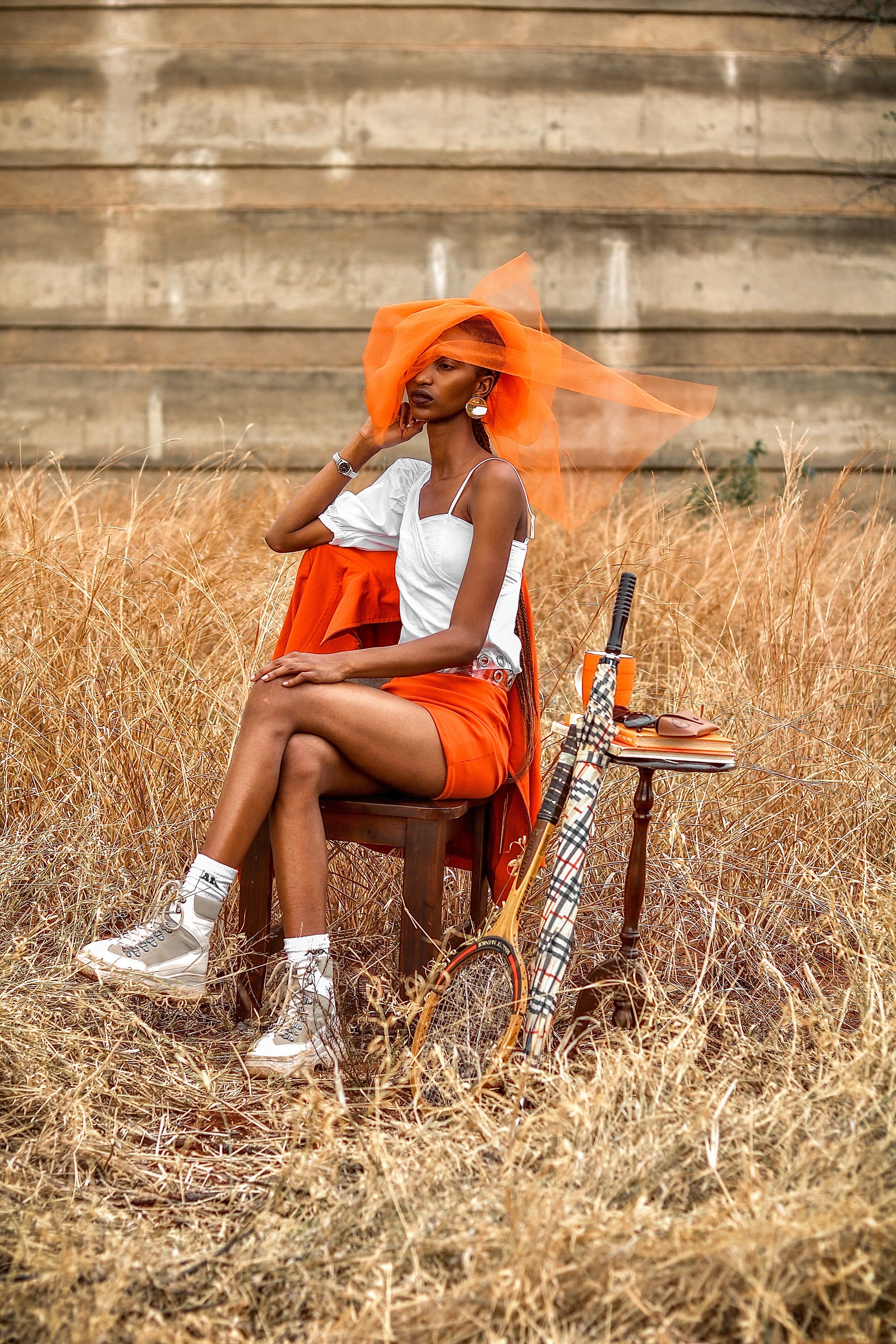
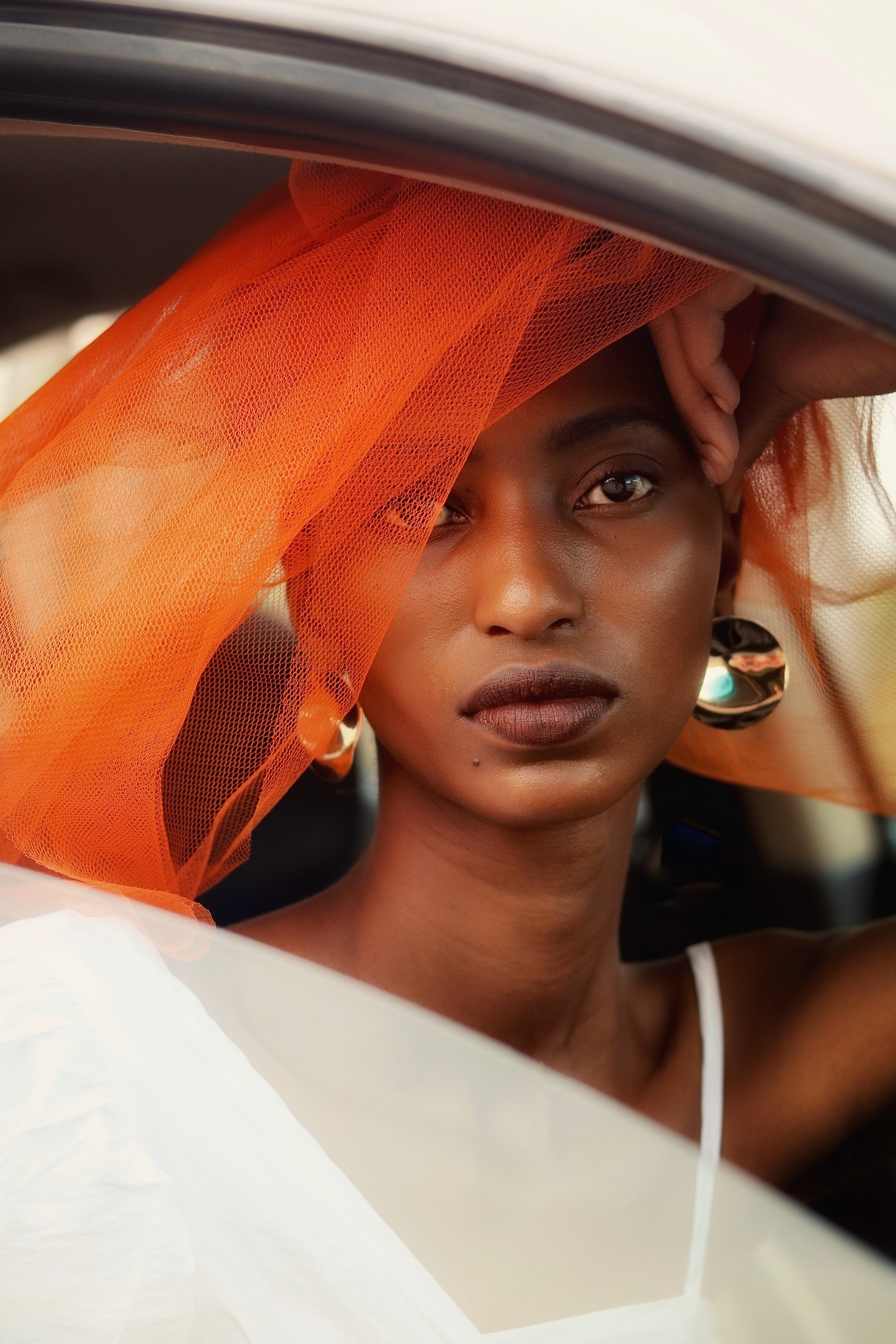
Inspired by the emphasis on fashion in early 2000s films like Princess Diaries and Mean Girls, Phuti’s sartorial spirit is her devotion to the joy of dressing. In a country where “civvies” is the exception rather than rule in the schooling system, fashion is a refuge from the rigid projections we are taught regarding our identities. After school, Phuti began attending SA Fashion Week – purely out of curiosity – taking her camera with her, to document and bask in the work of local designers, and to peer behind the veil of how it all works in the industry. Phuti has a tenacious ability to reinterpret cultural inspirations from US-centric music and films through a decidedly South African lens; drawing on the local ingenuity of expression she grew up around, in a way that feels even cooler than whatever TV may have shown us. On these fashion show days, “I would buy a ticket for a show I really wanted to see at fashion week, and go by myself, walking around with my camera – and I’d meet people I knew from social media, and once I was even asked to sit in the front row because of my outfit; so I think all those moments, of just arriving in this spaces and knowing I belonged there, were build-blocks to my career now. This one time at a show, I saw DUT (Durban University of Technology) students showcasing, and at that time I had been accepted by LISOF; but my mom had expressed the financial challenge in going to a private design school. Those fees are no joke. So, after researching DUT – I knew this was the school I wanted to go to, with alumni like Katekani Moreku – so it seemed like a great fit. One of my lecturers was Kiara Gounder, who is a prominent 3D accessories designer locally and internationally – so DUT gave me the best nurturing and guidance I could have asked for.” Phuti touches on a poignant sentiment regarding the state of fashion education in South Africa; with an immense focus on expensive, privatised institutions – a career in fashion can seem even more inaccessible. Yet, in my humble opinion, a school like CPUT also has one of the best fashion departments in the country; and is Lukhanyo Mdingi’s former school.
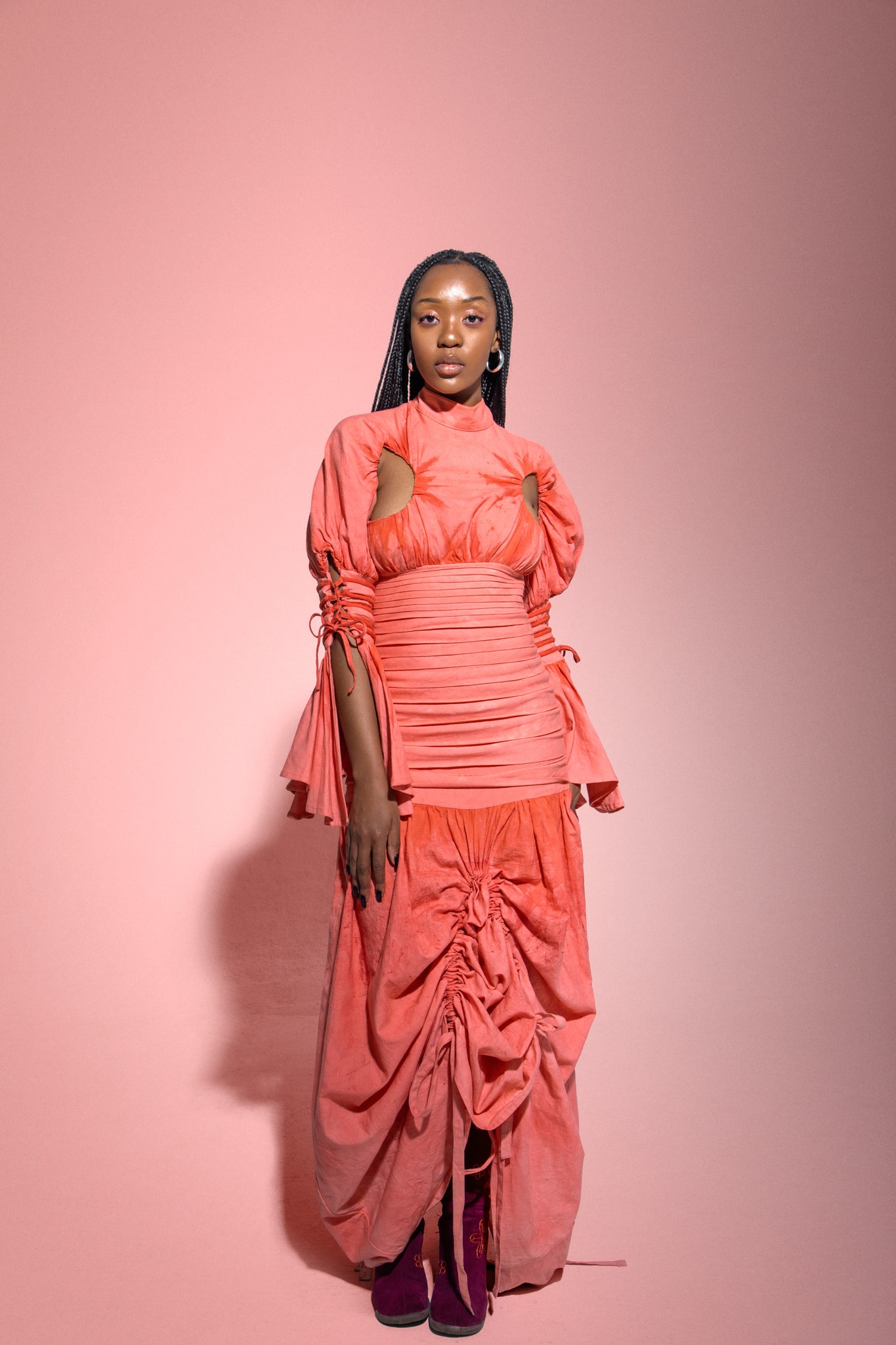
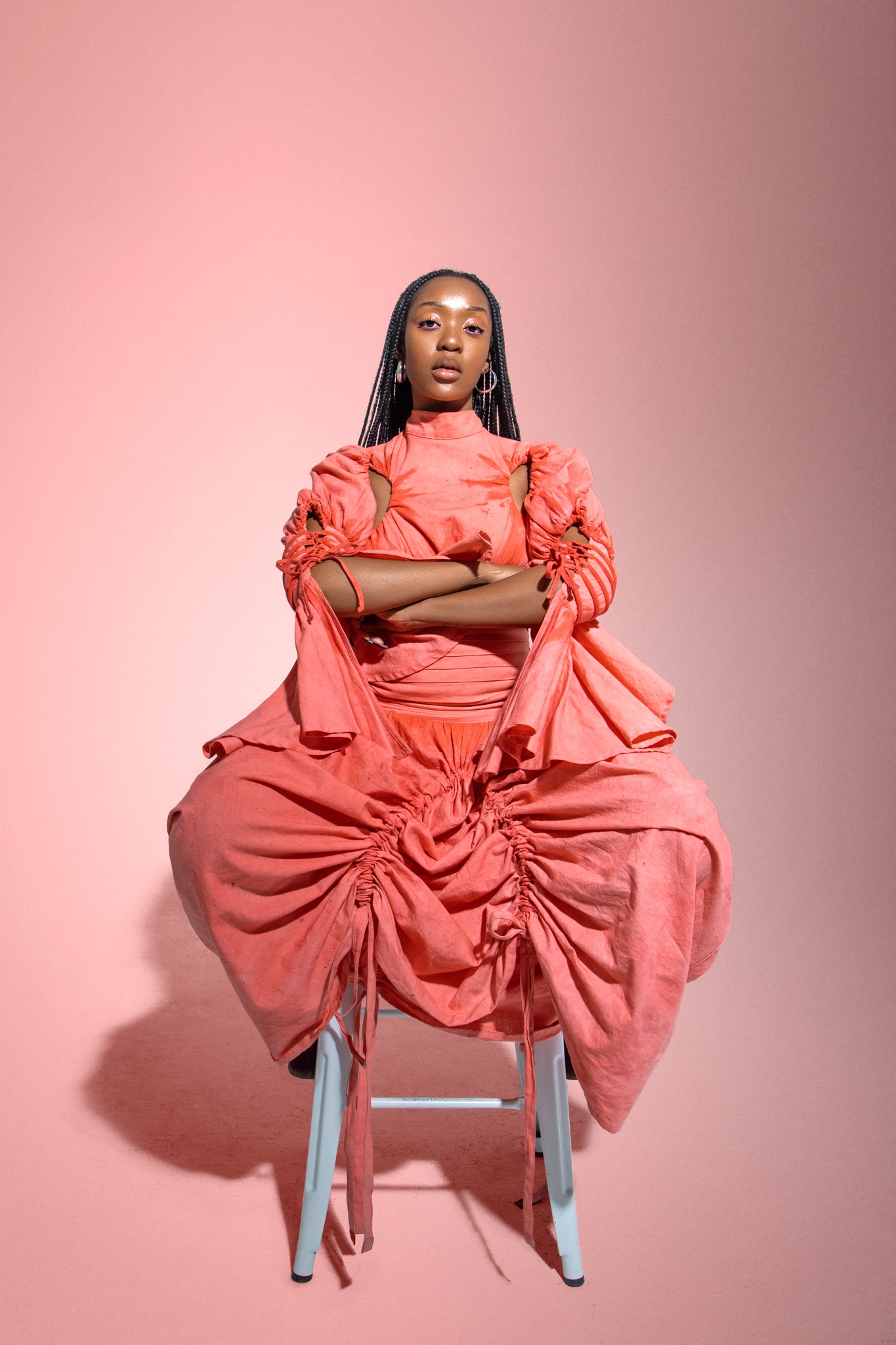
Speaking on her label, Phuti says, “My business partner for P EXOTIC, Aphiwe Gxawu, is a fellow student at DUT, and we met in Durban. We started doing our own thing, and it was actually born out of not having anything to wear for a night out – so we’d make cute outfits like two hours before heading to the club. That’s one of the coolest moments from learning design and how to sew; when we realised we could make exactly what we needed, that’s the core of what we do. P EXOTIC is the story of us as girls getting ready, and sharing that with our customers. We are both in Joburg now, but P EXOTIC is inspired by the sexiness and style of people in KZN.” The emphasis on fashion in South Africa tends to be central to Joburg and Cape Town, yet Durban is an unsung city and influence; home to Mr Price’s headquarters, with a laidback, coastal spirit – Phuti reflects, ‘’A lot of people in Durban make their own clothes. Normal, regular households will have a sewing machine, and there’s so much fabric and textile history in Durban which I think has been overlooked. And the general style is not mainstream, either – which is really interesting – because I think fashion is really about individual people expressing themselves. I think there’s a lot of recognition that needs to be paid to Durban, and for the rest of the country to bring them closer into the fold of the fashion industry. I loved my time there, there’s so many different cultures and just a different way of life than I’ve experienced elsewhere in the country.” Phuti has since moved to Joburg, a natural progression towards being in the central hub for brand-building, design and creative direction. Here, she plans to continue growing P Exotic and Closet Chipi – with the latter being a thrifting store that she runs with Maipelo Kaledi, carefully curated to reference looks of films from the past. One thing about Phuti and her friends? Their taste and touch will be on everything they do, uniquely and exceptionally so.
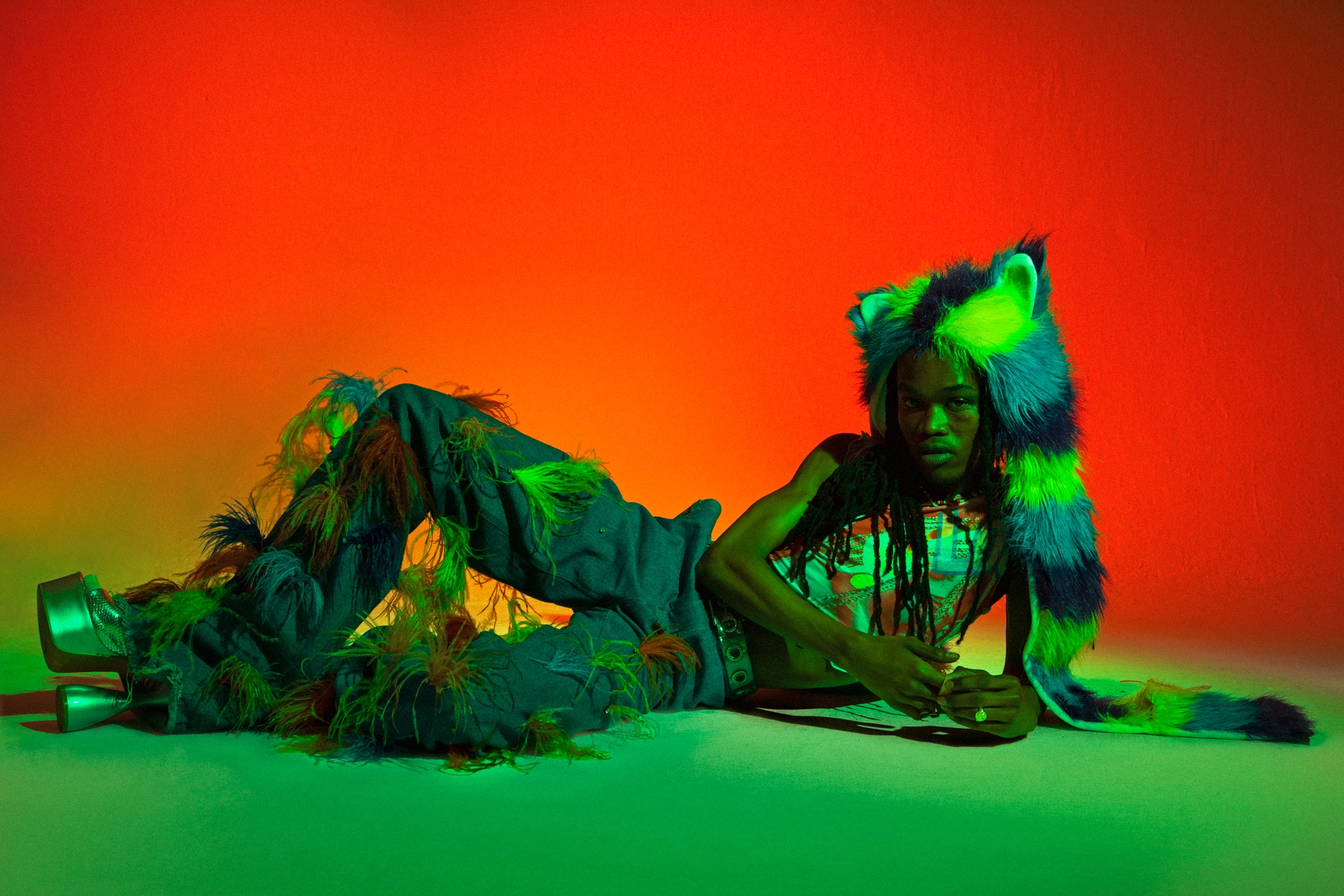
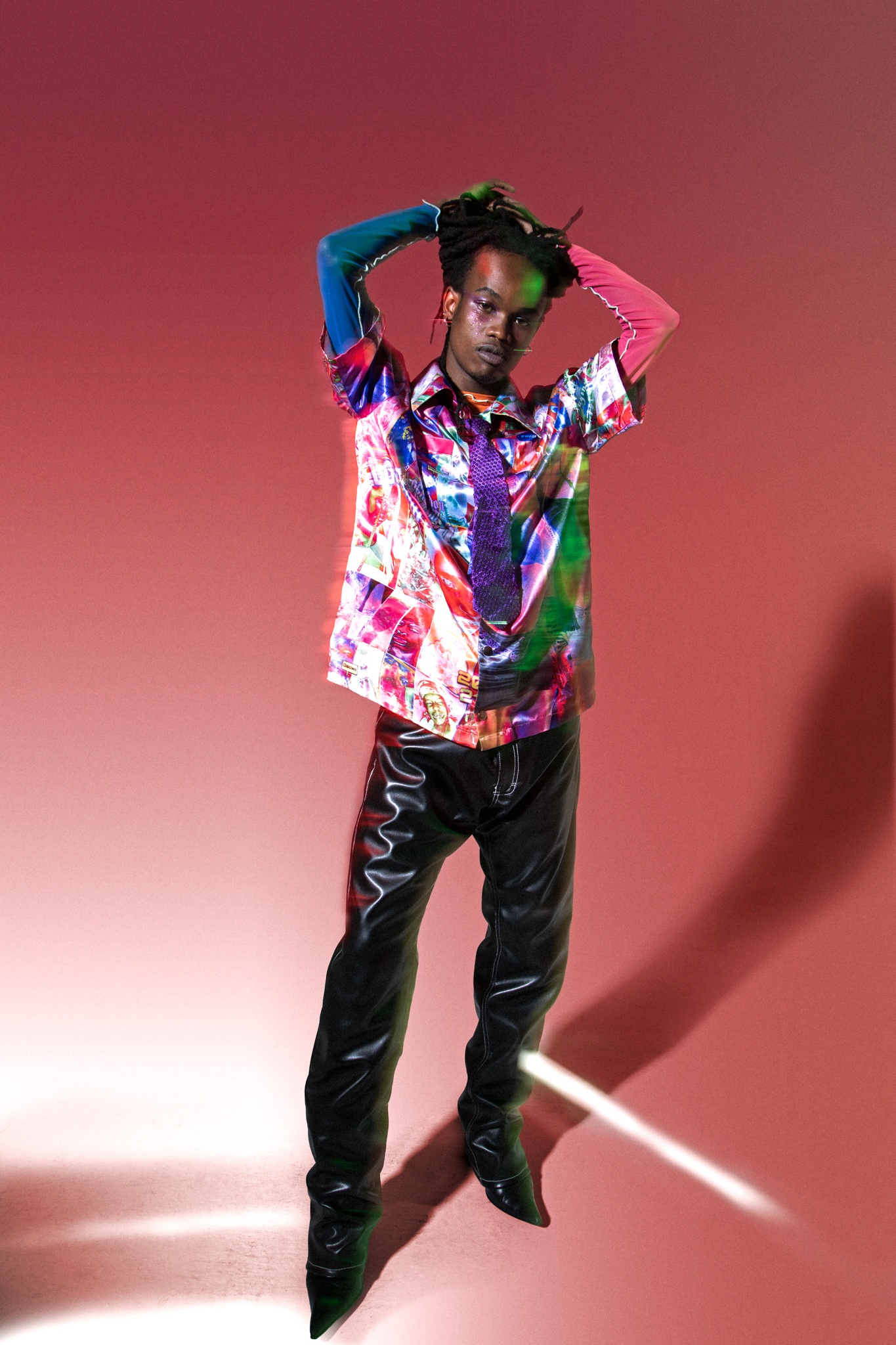
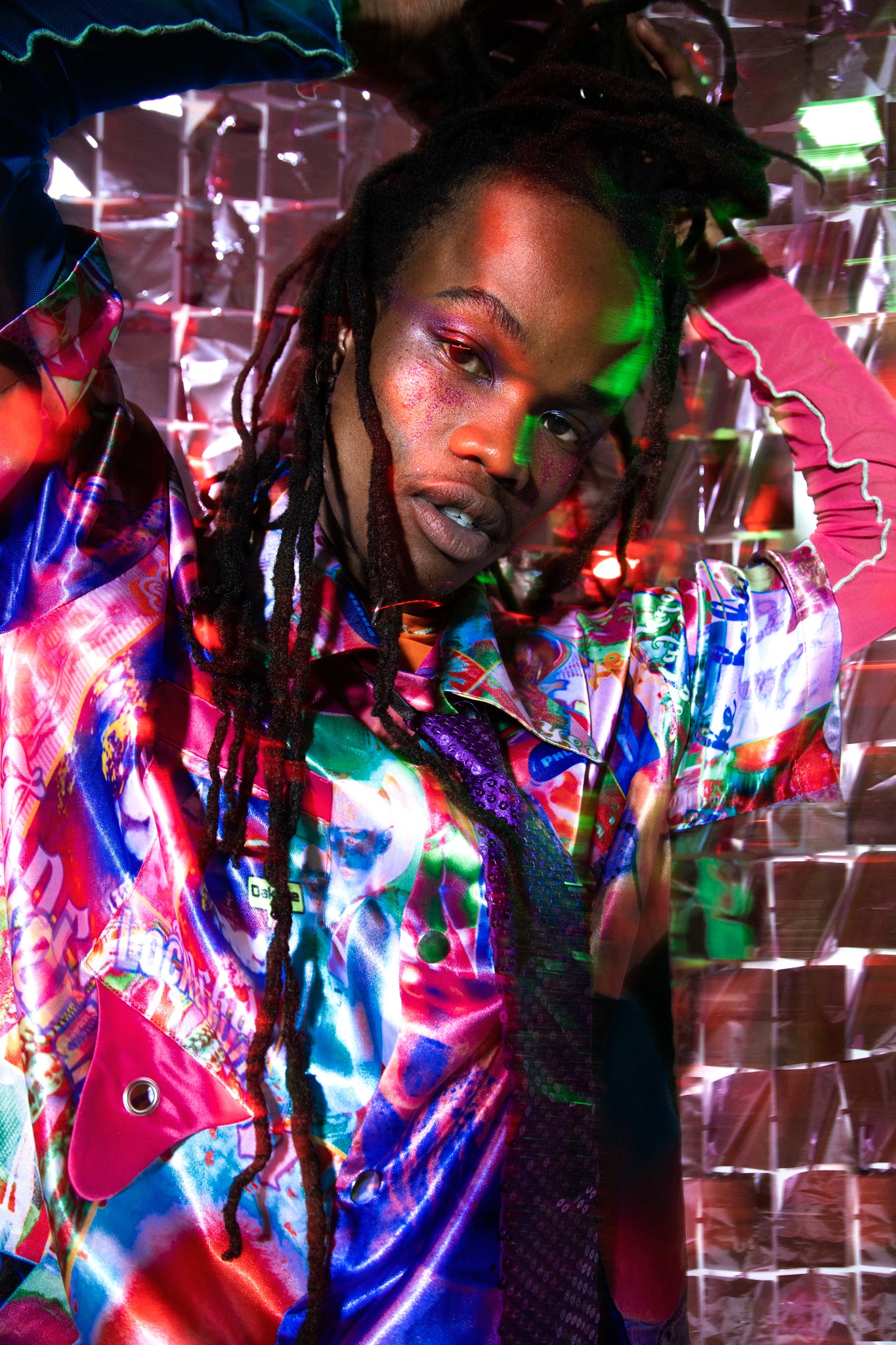
Phuti’s expression of pink is perhaps her most key signature – never failing to show a thousand ways and shades that this hue can be adorned. “Pink is a lighter shade of red, and it’s significant because we think it’s really girly, but I read that it was once worn by men in war. It has a really influential history in colour theory. I love the way it makes me feel, and the contrast of the colour on my skin. It’s also my mom’s favourite colour – and it represents such strong feminine energy. I think there’s a lot of narratives attached to the colour, and I like to challenge those perceptions – it’s my base colour from which I build every other colour I wear, but also, it’s just my favourite colour, and on black skin? That’s strawberries and chocolate, is there a more delicious combination?” Phuti states, ending our conversation with a definitively beautiful arc.


